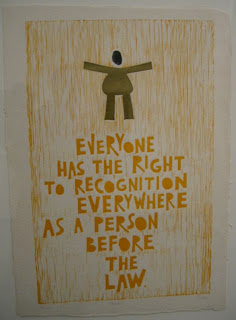 Tasting the future today
Tasting the future today
And these tastes of the future, these glimpses of God's coming presence, are genuine tastes, real glimpses, because of the Holy Spirit, the Spirit of the future. The physical resurrected body of Christ is hidden with God, but he has poured his Spirit, the Spirit of the risen Christ, into those who follow his way. And so by the Spirit, God is with us today. Not physically, not in fullness, not unveiled. But truly with us. The Spirit blows where he will (John 3.8). We can’t control or summon him like a pet dog. But when the gospel is truly proclaimed and people turn to Christ, there is the Spirit, there is God with us. When love overcomes hate and indifference, when death doesn’t get the last word on the meaning of our life, when we acknowledge our interdependence with all living things, there is the Spirit, there is God with us. When we share a meal of bread and wine and find ourselves bound together by a bond of peace, there is the Spirit, there is God with us. Where Christ is proclaimed and honoured in word and deed, there is the Spirit, there is God with us. Where there is a broken heart that cries to God in loneliness and anguish, there is the Spirit, there is the presence of God: The LORD is near to the brokenhearted, and saves the crushed in spirit (Psalm 34.18).
I recently received an email from a friend in long-term isolation on a cancer ward which ended like this:
I feel God's presence very strongly at the moment and throughout all of this there have been many blessings. I have realised more than ever that I would rather cross a raging river with God that stroll on the river bank without Him. I cannot imagine what it would be like to go through this without Him.
God is
an ever-present help in trouble (Ps 46.1). This help is not necessarily what we expect or demand, but exceeds all we can ask or imagine.
But what of our ordinary life? Is God with
me day by day?
For thus says the high and lofty one who inhabits eternity, whose name is Holy: I dwell in the high and holy place, and also with those who are contrite and humble in spirit.
- Isaiah 57.15
The Spirit of Christ, like Christ himself, prefers to hang out with those who recognise their need, who come to life with empty hands and are quick to give thanks. Is this me? Am I contrite and humble, or am I so full of myself there's no room for anyone else, no room for God? Are we as a community humble? Is God with us?
God’s Spirit, the Spirit of Christ, breathes life into us as the body of Christ, as a community tied together by our experience of God with us. This is what animates our meetings, what quickens our passions; this is who gives us a word of comfort or careful rebuke, a word of apology or hope. This is who moves us to care for the lonely, to stand up for the weak and voiceless, to share with our neighbour. This is who enables us to
live fearlessly. It is the Spirit of Christ, God with us. God is not stingy. Our everyday lives are saturated with hints and echoes of his presence. Moments of beauty, of humility, of grace and truth.
We live everyday in the presence of God. But he is not our magic talisman, our lucky charm, our guarantee of success, our assurance of being right. He is not so much on our side, as
beside us – in our neighbour – and
inside us, giving us no rest until we find our rest in him. God is with us, but he is not in our box. Remember,
he sits on top of the box, ruling as king, enthroned between the cherubim. He is lifted up on a cross, ruling as king as the nails are driven home. He is alive and amongst us as we live and move and have our being. He can be found in an embrace, seen in a gift, heard in a kind word, yet heaven and earth cannot contain him. He is here. He is coming soon.
Come Lord Jesus. Amen.
Series: I; II; III; IV; V; VI.


















